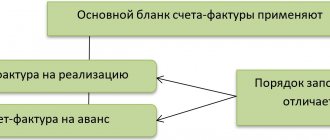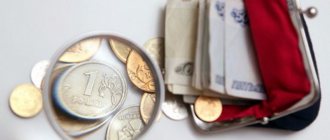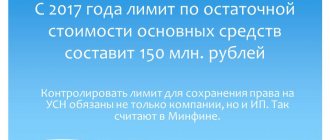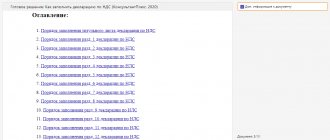VAT increase
The most discussed topic was the increase in VAT from 18% to 20% in accordance with Federal Law N-303. This implies an increase in prices for certain categories of goods, mobile communications and adjustments to previously concluded contracts. But there is an exception - a 10% preferential interest rate on socially significant types of goods:
- meat products;
- dairy products;
- children's goods (toys, clothes, art supplies);
- vegetables;
- animal feed.
Also, changes will not be made for passenger transportation to the territory of the Far Eastern District and air transportation to Crimea and Kaliningrad. Contributions will remain zero.
Once and for six years
Innovations in fiscal legislation, which come into force in 2019, will not change for the next six years. They will affect almost all areas of the economy. The main ones:
— Increase in the value added tax (VAT) rate from 18 to 20%. It is expected that these two percentage points will replenish the federal budget by 620 billion rubles per year. The funds will be used to solve problems of healthcare, education, and infrastructure. The new rules will not affect the basket of essential goods (primarily these include basic food products: meat, cereals, milk, etc.) - for them the rate will remain at a preferential level of 10%. According to the Central Bank's baseline forecast, the VAT increase will lead to price increases of about one percentage point in 2019.
What will change in the lives of Russians from January 1
Abolition of dachas, increase in benefits and other innovations
—Increase in excise taxes on gasoline (by 48.6%), diesel fuel (by 50.8%), cars (by 4%), cigarettes (by 9.1%), as well as the abolition of preferential excise taxes on Russian wine and champagne from places with protected geographical indication. According to Central Bank estimates, because of this, automobile fuel in 2020 may rise in price by 4.6%, cars by 0.2%, cigarettes by 4.6%, wine and champagne by 0.9%.
—Completion of the tax maneuver in the oil industry. Tax reform in this area has been discussed for several years. From the beginning of 2019 to the end of 2024, the export duty on oil will be gradually reduced - from 30% to 0%. In parallel, there will be a proportional increase in the mineral extraction tax (MET). The tax maneuver, on the one hand, will bring an additional 1.3–1.6 trillion rubles to the treasury, Deputy Prime Minister Dmitry Kozak previously estimated. On the other hand, it will put the domestic and foreign fuel markets on an equal footing, which could push up gasoline prices to European levels. In order to neutralize the possible negative consequences of the tax maneuver, a so-called refundable excise tax is provided for gasoline producers. In fact, this is a subsidy that should limit the rise in retail prices.
Everyone come out of the darkness
How the authorities intend to collect taxes from 25 million self-employed Russians
— Introduction of a new tax regime for self-employed citizens working without employees and without establishing a legal entity (freelancers, tutors, craftsmen, and so on). The law will affect Russians with an income of up to 2.4 million rubles per year. They will be exempt from personal income tax and VAT, but will be required to pay 4% of income for working with the public and 6% for working with legal entities. Until 2028, the new rules will be implemented on an experimental basis. During this period, the regime will operate only in Moscow, the Moscow and Kaluga regions, as well as in the Republic of Tatarstan. In the future, it can be extended throughout the country.
— Increase in environmental tax rates. According to the law, the increase will affect 54 groups of goods and packaging that are subject to disposal after losing their consumer properties. The new rate range is from 3 thousand to 40.6 thousand rubles. Currently, the environmental fee is levied on 36 groups of products and the fee level varies from 3 thousand to 36 thousand rubles.
— Cancellation of movable property tax for business. This type of fee was introduced in 2020, it was paid at a rate of 1.1% of the average annual value of movable property (for example, machinery and equipment). Finance Minister Anton Siluanov previously explained the exemption of enterprises from this tax by the desire to smooth out the negative effect of the VAT increase. According to him, total losses due to its cancellation could amount to about 180 billion rubles.
Tax_1
From January 1, 2019, excise taxes on motor fuel will increase
Photo: IZVESTIA/Andrey Ershtrem
Revenue volume: transport tax on luxury cars helps the budget
Where in Russia do they pay the most for personal transport?
Change in personal income tax
In 2020, personal income tax rates and amounts remain the same. However, the following amendments have been introduced:
- abolition of fines for tax agents who independently identified errors in reports and made corrections;
- new form 2-NDFL, which implies the abolition of providing certificates in electronic form;
- new form 3-NDFL, where deductions from the tax agent are entered separately.
Also, on March 28, 2020, a new bill was developed, which implies a change in personal income tax rates as follows:
- 5% for citizens whose annual income is less than 100 thousand rubles;
- 13% for those who earn from 100 thousand to 3 million rubles per year;
- 18% for citizens whose total income for the year ranges from 3 to 10 million rubles;
- 25% for those whose income exceeds 10 million rubles.
Currently, the rate is 13% for all categories of citizens, regardless of the amount of income.
Best INVESTMENTS
Tax for self-employed
A new tax in 2020 awaits residents of Moscow, the Moscow and Kaluga regions, and Tatarstan. The levy will affect people who are not employees or business owners, but who receive profit from the use of personal property or the provision of services.
Provided that the monthly income does not exceed 200 thousand rubles, the following categories fall into the category:
- specialists whose activities are related to information resources (copywriters, web designers, programmers);
- seamstresses, photographers, beauty professionals;
- private cab drivers;
- residential landlords;
- citizens providing educational and developmental services (tutors, nannies, massage therapists)
The rate when working with individuals will be 4%, with legal entities – 6%, while self-employed citizens are exempt from paying personal income tax. The measures taken will allow people to enjoy all the benefits of officially working people, however, with this taxation procedure, no contributions are made to the Pension Fund, so everyone will have to think about their future pension independently.
According to Federal Law No. 422-FZ dated November 27, 2018, the system for collecting taxes from self-employed citizens is experimental and will operate in the mentioned regions from 2020 to 2028, then, after assessing the effectiveness, the issue of its introduction throughout the Russian Federation or completely will be decided. termination of the experiment.
Increase in excise taxes
An increase of approximately 10% is expected. This will be especially noticeable in the increase in prices for tobacco and alcohol products. This will also affect the rise in gasoline prices. From this we can conclude that the higher the bid, the more expensive the final price of the product will be. These changes are set until 2020, and they are planned to be adjusted in the future.
ONLINE COURSE for $30: Financial management (corporate finance)
POPULAR ARTICLES
INSTRUCTIONS FOR SURVIVAL DURING A CRISIS: how to save your family, money and business?
You can't save it: 5 steps to save your business during a crisis
Why will investors trust the dollar more than the euro in 2020?
Calculation of cash flow. Part 1.
Features of obtaining loans secured by real estate.
Cash pooling: who needs it and why?
Investing personal capital
7 steps to success for an investor
10 ways to make money online
FFMS certificate: how to get it?
Personal experience of obtaining a CFA
8 steps to prosperity
What is important to know about SWIFT?
SAP Financial Module
Tourist tax
Currently, resort fees are collected in the southern regions of Russia (Crimea, Stavropol and Krasnodar Territories, Altai). Its essence is that vacationers pay 2% of the cost of accommodation if the time spent in the resort area exceeds 24 hours.
According to the latest information, the new tax in 2020 will begin to operate only in the territory of St. Petersburg, and in 2020 all regions of Russia will be able to levy a tax to replenish their own budget. This will allow us to receive additional funds for the development of the infrastructure of cities and the tourism business of the whole country. The main income, according to the developers of the bill, will come from foreign citizens arriving in the Russian Federation for recreation.
The tax will not affect the following categories of citizens:
- having an official place of work or real estate in the taxable territory;
- participants in combat operations, heroes of Russia, the USSR, armed conflicts, labor, etc.;
- holders of a number of orders, according to the list;
- disabled people of groups 1 and 2 and persons caring for them;
- patients with tuberculosis;
- low-income people recognized as such in the region of residence;
- named in paragraph 1 of Art. 7 of Law No. 214-FZ.
Important! Vacationers who do not want to stay in places of organized recreation for people, the so-called savages, or who come to visit relatives who have real estate in the resort area, are exempt from the fee.
For garbage removal
Since 2020, in Russia, with the exception of federal cities - Moscow, St. Petersburg and Sevastopol - the so-called garbage reform has come into force. Now a specially authorized company, a regional operator, will handle waste removal and disposal. For now, the main change will be the increase in waste disposal tariffs. Residents of apartment buildings will be required to pay an additional 148 rubles per month for each person registered, and residents of the private sector - 182 rubles.
Related news
Apart from the increase in tariffs, nothing will change from January 1: garbage reform in Yekaterinburg through the eyes of a relocation operator
Growth of UTII since 2020
From January 1, 2020, the UTII rate was increased by 4 percent. The tax was increased by order of the Ministry of Economic Development dated October 30, 2017 No. 579. This was the first increase in three years.
The tax calculation involves an inflation coefficient called K 1. In 2014-2016, this coefficient was not raised. It was 1.798.
And for the first time in three years, the authorities increased K1 - in 2020 it was 1.868. Knowing this, it is not difficult to calculate that from 2020, tax collectors will pay UTII almost 4% more than in 2017.
Approximately the same increase is expected in 2020 for UTII.
Property tax for individuals – abolition of the reduction coefficient
When calculating the property tax of citizens, depending on the year when the region first began to calculate the cadastral value, a benefit is applied - a reduction factor (clause 8 of Article 408 of the Tax Code of the Russian Federation). The coefficient of the first year is 0.2, the second – 0.4, the third – 0.6. But the benefit for the fourth year (coefficient 0.8) was canceled by Law No. 334-FZ of 08/03/2018. Thus, property tax for individuals is increasing already this year when calculating the tax for 2020.
We considered only important changes relating to increases in taxes and fees for citizens, individual entrepreneurs and legal entities. We must remember that in the middle of the year, utility tariffs usually increase, the cost of travel on public transport increases annually, and, naturally, the cost of goods and services increases.
Land and transport fees: changes 2020
The cancellation of land and transport tax declarations is good news for taxpayers. But don't rejoice ahead of time. Reporting is canceled from 2020. Submit your 2020 returns on time using the current forms. Penalties are provided for failure to submit 2020 reporting deadlines. The new rules are collected in the table of tax changes for 2020.
| Tax | What's changing since 2020 |
| Minimum wage | 12,130 rubles for full time. |
| Insurance premiums | The calculation of contributions has been updated. There are 10 or more people on staff - submit reports electronically. New limits:
|
| Personal income tax | The deadline for submitting 2-NDFL and 6-NDFL based on the results of 2020 is until 03/02/2020. An electronic report is required for all employers with 10 or more employees. |
| Property tax | New declaration form. There is an increase in taxes in 2020 - the list of property taxed at cadastral value has been expanded. Quarterly payments have been cancelled. |
| Special modes | Taxpayers will not be able to use UTII when trading medicines, footwear and products made from natural fur that are subject to labeling. Please note that tax rates will not change under special regimes. |
| Transport and land taxes | Declarations for 2020 have been cancelled. Don’t forget to submit reports for 2020 to the Federal Tax Service. |
How to pay tax
To begin applying the NAP, a citizen of the Russian Federation, including individual entrepreneurs, must submit an application, a copy of the passport and a photograph to the tax office. If he has a personal account on the Federal Tax Service website, then all he needs to do is submit an application. Access to your personal account is a prerequisite for registration of individuals – citizens of the EAEU countries.
Citizens from other countries cannot apply the NAP.
An application for registration with the tax authority, a copy of a passport, and a photograph of an individual are generated using the “My Tax” mobile application without using an enhanced qualified electronic signature.
The inspectorate will inform the applicant about the assignment of NAP payer status through the application. If she reveals contradictions and inconsistencies in the documents, registration will be denied.
You can also voluntarily refuse to apply the NAP by sending an application to the inspectorate.
Individual entrepreneurs using the simplified tax system, unified agricultural tax or UTII who decide to switch to NAP must notify the inspectorate of the termination of the use of special regimes within 30 days from the date of registration of the NPD payer. Otherwise, the NAP payer’s registration will be cancelled.
The “My Tax” mobile application can be installed on a computer, laptop, tablet, smartphone and even mobile phone.
The tax authorities will indicate the tax amount in the monthly electronic notification. They must send this document no later than the 12th day of the month following the tax period.
The tax is paid by the 25th. For example, tax for January 2019 will need to be paid no later than February 25, 2019.
You can authorize the bank or electronic platform operators to transmit information about income to the tax authorities. This is also an innovation in tax legislation.







